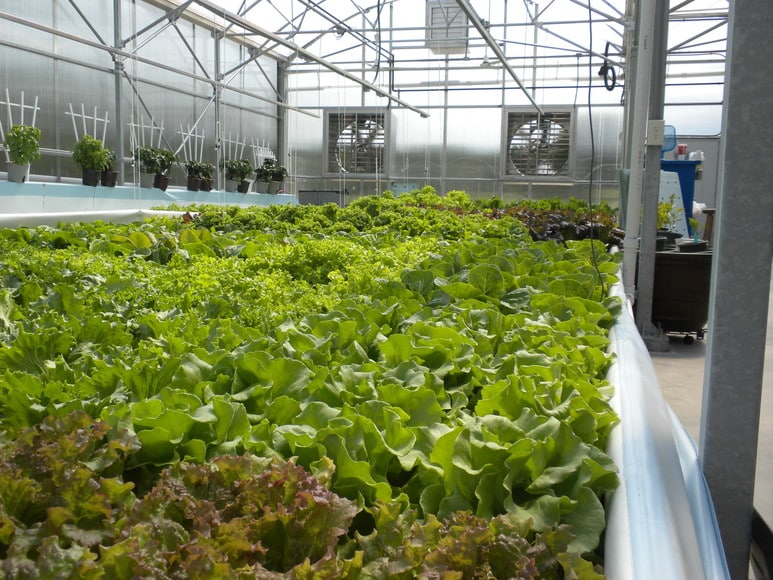Growing vegetables by water method is no longer strange to the people, but few know how hydroponics systems.
Hydroponics has been standardized according to international standards and does not affect the health of consumers. This is a simple way to help people in the city can grow their own vegetables to eat and also a very relaxing way to relax.
Hydroponic cultivars
Those who have the knowledge of plant physiology and chemical fertilizers can completely prepare the nutrient solution to suit the needs of each vegetable. The principle of nutrient combination in the form of a solution is not allowed the chemical reaction occurs to convert to toxic or precipitate and concentration, pH of the solution must be reasonable (because the plant is preferred to pH should be between 5.5 and 6.5). For normal growers, this solution can be purchased at the farm or seedling shop.
Check Price For Hydroponics Systems From Amazon Lick Here
Hydroponics is not just about dropping the roots of vegetables into liquid nutrient solution, you can also take a portion of the substrate (usually fiber) to fix the roots. This also creates ventilation to the roots of respiratory plants, the root tips when the length can be flooded into the fluid to absorb nutrients.
All You Need To Know About Hydroponics Systems

The selection of pots also affect not significantly to the solution and the quality of vegetables after harvest. It is best to choose a sponge because it is light and heat-
The inside of the box should be black nylon lining to form a dark chamber that will be suitable for root development by better nutritional absorption. Moreover, this environment also keeps the hydroponic solution stable, avoiding the sunlight into the metamorphic, in addition to limit the appearance of moss in the solution.
When planting hydroponic, you should equip the suction line through the hole to make up the solution or replace the solution for convenience. Especially useful for growers taking ppm and pH samples to adjust the solution to suit the crop
Hydroponics is the practice of growing plants without soil. Hydroponics permits the cultivator a high degree of control over what the plant is fed and the plant can be provided with all its nutrients in a form that makes them very easy to take up: a water-based nutrient solution is circulated past the plant roots, recirculating the unused nutrient. Plants that are grown using hydroponics don’t required to form extensive root systems, they developed several fibrous roots and get food and water very well. They can dedicate more energy into foliage, flowers, and fruits. Hydroponically grown plants do not need to form extensive root systems, they grow many fibrous roots and take up food and water very efficiently. This means that they can devote more energy into foliage, flowers and fruits. Yields of crops can be up to 75% larger than those of soil.
Will be explaining some benefits of hydroponics systems in a way that the reader can understand that this system can be used by anyone. The first benefit will be talking about is
Water preservation: Irrigating plants in a garden ecosystem results in less than 10% of the water applied being utilized bye the plants, the other evaporates or drains away. When this happens the plant loses nutrients because the water drains them. This produces contamination and more fertilizer is required. When you use a hydroponics system there are no losses to drainage and as long as evaporation is regulated hydroponics utilizes as small as one tenth of the water that a usual developed crop would need. Hydroponics can be greatly effective in areas where water resources are restricted. In the Middle East in places like Israel and the Gulf States and desert areas in other places in the world or in urban areas hydroponics represents the only method to produced and developed crops. Another benefit is Natural conservation: A lot of characteristics of traditional organic do not apply to hydroponics. For example preserving soil fertility, arrangement and controlling weeds in an authorized method. Hydroponics farmers don’t sustain the soil. They don’t control weeds because there is no soil. Even though, the nutrients in a hydroponic system are typically created synthetically they are chemically the same to those the plants would get in a soil.

Leave a Reply